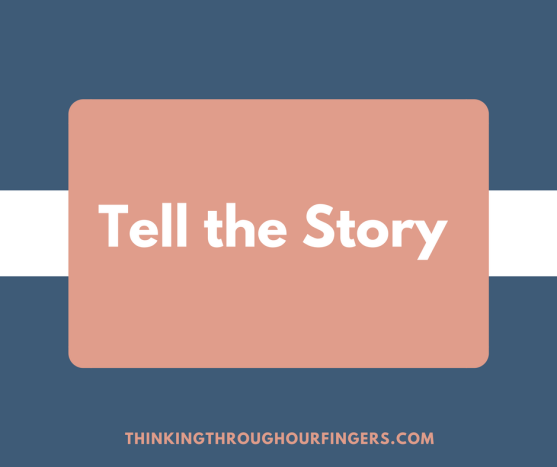Tell The Story
I just got back from a whirlwind trip in various European countries after two weeks of traveling for a writing retreat and work. There are many MANY things that I saw and experienced that I know I don’t fully appreciate yet because I’m still a bit jet-lagged and haven’t had the mental capacity to really reflect yet. But there was one thing that stood out to me as I wandered through hotels and churches and communities and cities: while many people had a part in each of these, a stranger who is visiting can relate through the power of story.
Story is Necessary for Societies to Survive
Really, this isn’t a new insight for me – it probably isn’t for anyone. When I taught high school English and walked teens through the nuances of The Odyssey by Homer, The Adventures of Huckleberry Finn by Mark Twain, or The Scarlet Letter by Nathaniel Hawthorne, I would emphasize over and over again that there are four things necessary for a society to survive: shelter, sustenance, sex, and story.

You can guess which one they wanted to talk about first.
Shelter and sustenance are fairly easy to understand – we mere mortals are fragile beings not well-suited to just “wing it” when it comes to the forces of nature. We only need to scan through the headlines of any current news source to see that this is true.
Sex is necessary in order for people to have more people. Societies that have tried to avoid this don’t last very long. There are all kinds of other reasons this is a fundamental element for a thriving community, but that’s a topic for a different day.
The story was the one that confused my students. Why does it matter, they’d ask, whether or not they read about a guy who blinded a cyclops, or a boy who ran away from a drunkard father, or a woman who kept a secret? What they came to learn, what writers and readers need to remember and understand, is that story is how we share traditions, lessons learned, insights gathered, and then, in turn, share that advice with others.
Don’t Start with Advice in Mind
As soon as we realize (or remember) the power that story can have, we can quickly become overwhelmed with what it might mean to us as people, and in particular, writers. We can start questioning if our story needs to have meaning if we pick the message before the characters, and how we can implement symbolism that will stump students and thrill English teachers for decades (or even centuries!) to come.
Stop.
These are all good things, but they aren’t what we should be doing from the very beginning. No, instead we need to consider our characters, and what their story means in their world. We need to craft experiences, allow our characters to engage with others in their world, and consider their strengths and weaknesses, and all of the nuances that make characters GOOD characters.
Sure, there may be themes that show up, metaphors that add depth to the story, etc., but the main purpose is to write a story that allows readers to gain a little better understanding of the nuances in someone’s life. Because as we read, we develop better empathy for what other people have experienced, making us relate to those around us in a more meaningful manner. And in today’s world, a little more understanding, both of those who are around us and those who may have experienced similar things in days gone by, just might be the thing that draws us together when so many things appear determined to drive us apart.